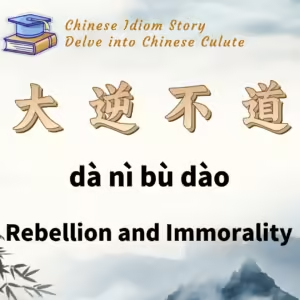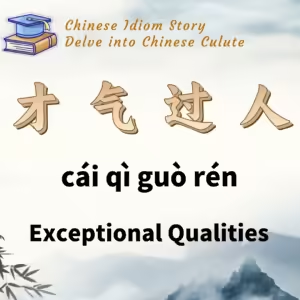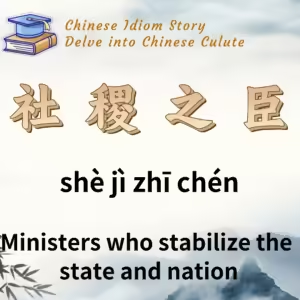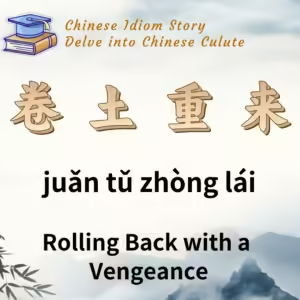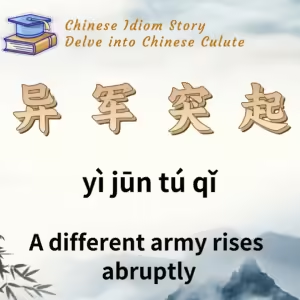
Chinese Idiom: 异军突起 (Yi Jun Tu Qi)
English Translation: A different army rises abruptly
pīn yīn: yì jūn tú qǐ
Idiom Meaning: This idiom describes the sudden emergence of a notable or distinct force, often referring to a new power or influence that captures attention.
Historical Source: 《史记·项羽本纪》 (Records of the Grand Historian · Annals of Xiang Yu).
Idiom Story:
In 208 BC, during the period of the Qin Dynasty, a peasant uprising led by Chen Sheng ordered his subordinate Zhao Ping to attack Guangling (an ancient county, now Yangzhou). However, before the attack could begin, Zhao Ping learned that Chen Sheng had been defeated by the Qin army and was on the run. Faced with the imminent advance of the Qin forces, Zhao Ping crossed the Yangtze River and joined forces with Xiang Liang and Xiang Yu, who were already in the Wu region (now Suzhou, Jiangsu).
Feigning to act on Chen Sheng’s orders, Zhao Ping appointed Xiang Liang as Shang Zhuguo (the highest military official in the state of Chu) and urged him to mobilize troops to confront the Qin army, claiming that the eastern region had already been pacified.
Meanwhile, Xiang Liang learned of another rebel leader, Chen Ying, who had successfully risen up in Dongyang (now near Tianchang, Anhui). Xiang Liang sent envoys to connect with him and advance westward. Chen Ying, a loyal and honest former county magistrate, was reluctantly thrust into leadership after the youth in his county revolted against the corrupt county magistrate, killing him and seeking a new leader.
The Shiji (Records of the Grand Historian) recounts that, although Chen Ying initially declined the offer of leadership, he was ultimately forced to accept it, rallying around 20,000 followers. The young men in his group wished to crown him as their king, distinguishing their army with unique blue headbands.
Chen Ying’s mother, however, cautioned him against such a rapid rise to power, advising that it would be ill-fated to assume kingship without a noble lineage. Instead, she suggested aligning with a well-known aristocracy to increase their chances of success against the Qin.
This caution resonated with Chen Ying, who was already timid. When Xiang Liang’s envoy arrived, Chen Ying explained that the Xiang family had a long-standing military heritage and high reputation in Chu. They should follow a prominent noble to ensure their success against the Qin.
The crowd agreed with Chen Ying’s reasoning and ultimately pledged allegiance to Xiang Liang.
This tale of the youth rallying around a new leader and the distinct emergence of a new force led to the idiom “异军突起” (a different army rises abruptly) being coined, highlighting the sudden rise of a notable faction or power.


